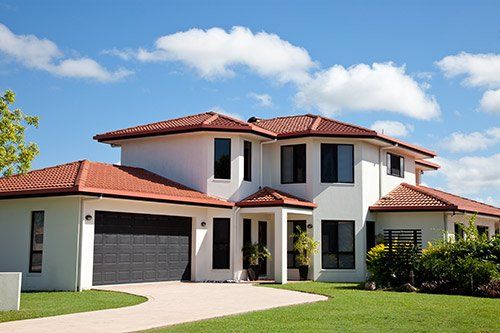By RETIREMENT FUNDING SOLUTIONS
•
October 27, 2017
With age, life only gets better. As a retiree, you have more time to travel, spoil your grandchildren, take it easy and do the things you love. However, with the average senior holding nearly $80,000 in mortgage debt, financial restrictions can make living your best life more of a dream than a reality, especially if you're struggling to maintain these payments. A reverse mortgage may be able to help. Learn what this mortgage solution can do for you. Understanding Reverse Mortgages Before you're able to understand how a reverse mortgage can help, it's best to first start with a clear understanding of what it is. In short, this option, also known as a home equity conversion mortgage ( HECM ) is a type of home equity loan. However, unlike traditional equity loans, reverse mortgages do not require recurring payments to satisfy the debt balance. This means you're able to remain in your home mortgage-free, while still satisfying smaller expenses like insurance and tax payments. When the borrower passes away or moves out of the property, the loan servicer then receives payment for the loan based on the sale of the home. Safeguard Your Health For homeowners 62 or older facing uncertainty when it comes to their mortgage payments, the consequences of potentially not being able to make each payment are significant. However, the consequences are particularly dangerous when it comes to your health. Financial woes bring about stress and lots of it. Over time, excess pressure can increase the risk for heart disease and Alzheimer's disease and bring about depression and anxiety. Preexisting conditions elevate these risks, as a limited income can leave you choosing between health care cost and mortgage payments. Calculate the fact that the average couple over the age of 65 can expect to spend more than $260,000 on healthcare costs after retirement, and it's clear to see how a mortgage concern can create problems. With the absence of a mortgage payment, you can limit your stress and make your healthcare needs the priority they deserve to be. Improve the Ability to Create and Protect Your Safety Net With a retirement comes a fixed income. This idea might be easier to grasp if retirement also came with fixed expenses. However, it's often the opposite. It doesn't matter how well you have planned and how diligent you've been with your spending habits, an unexpected event can cause you to tap into your savings. In addition to day-to-day costs, many people in their golden years still find themselves helping their children, tackling the cost of surprise vehicle repairs and facing increased medial costs due to the declined health of a spouse. For each of these incidents, having a financial safety net in place is helpful. But when you have a mortgage payment you're also struggling to make, you could find yourself pulling more out of your savings than you're able to put in. This can leave you unprotected. Luckily, a reverse mortgage can help you maintain your savings. Free Up Money for Home Renovations Your home is yours to enjoy, and it should be designed with your needs in mind. If you or your partner aren't able to get around with the same ease that you once did, access to modifications in the bathroom, along the stairwell and other spaces can increase safety and make your home more enjoyable. However, financial stressors can make it impossible to perform these upgrades. With the absence of a monthly mortgage payment, you can put more money towards accessibility updates and any other necessary and unexpected repairs. Even if you just want to make cosmetic improvements to your home, such as finishing the basement for your grandchildren, a reverse mortgage will give you more flexibility to upgrade your home in whatever way you want. A specialist at Retirement Funding Solutions can help you get on track to leading your best life. During a personalized consultation, a representative will discuss your needs and financial goals to assist you in finding the best solution for your situation.



